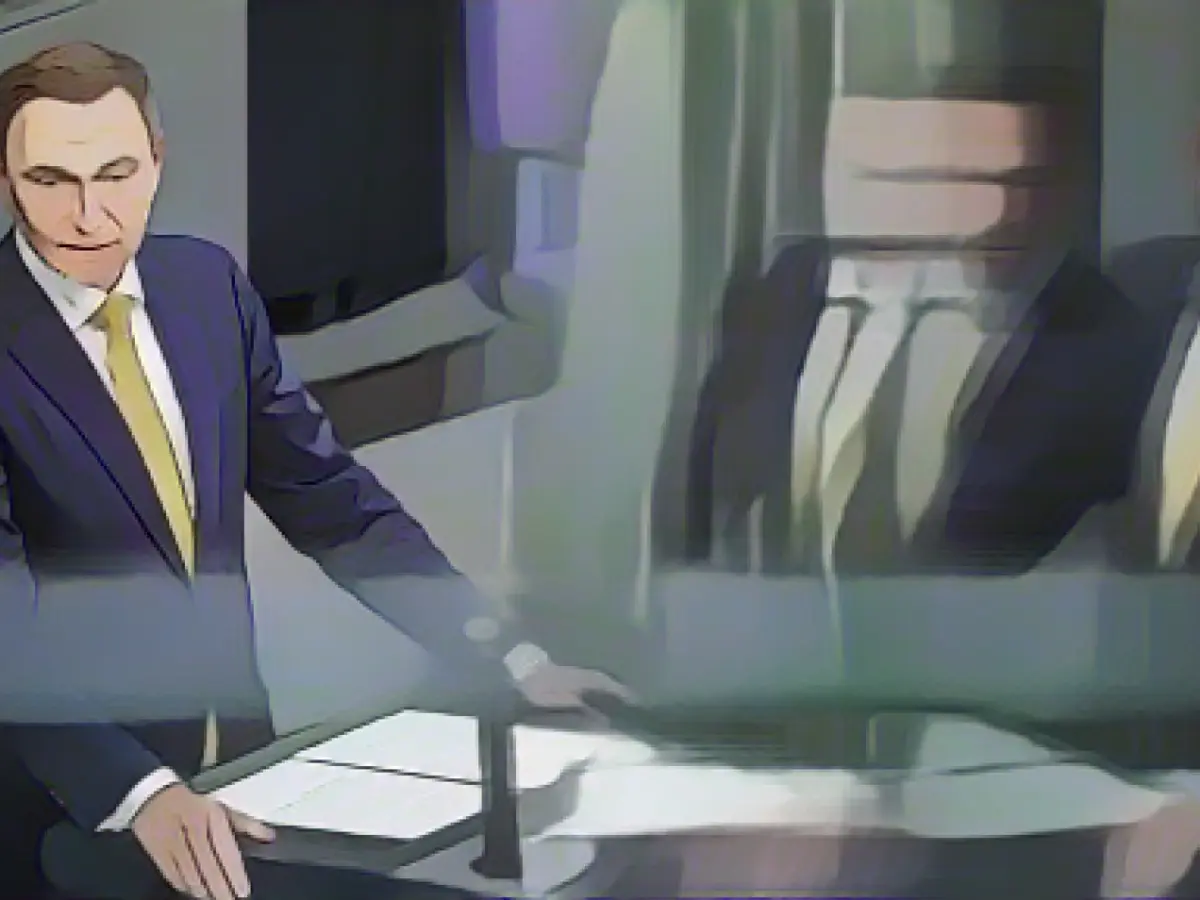Federal Government - Lindner: Shifting the budget instead of new debt
Finance Minister Christian Lindner does not want to take on any additional debt for the 2024 budget, but rather make savings.
"We will restructure the expenditure side. We will reprioritize other outdated expenditure that is no longer necessary in order to implement future investments and important coalition projects," said the FDP politician in the Bundestag. "More debt with a sharp rise in interest rates is certainly not the right way forward." He would rather spend money on future investments than on interest.
Following the Karlsruhe budget ruling, the traffic light coalition is struggling with the budget for the coming year. Lindner puts the financing gap at 17 billion euros. Various austerity measures are being discussed, but also a suspension of the debt brake in order to finance the aid payments to Ukraine via loans, for example.
Sven-Christian Kindler, budget officer for the Greens, spoke out in favor of reducing climate-damaging subsidies. "When, if not now?" he asked. Kindler also referred to a ruling by the Berlin-Brandenburg Higher Administrative Court, which ordered the federal government to launch immediate programs for more climate protection in transport and buildings. In addition, the debt brake must be extended for investments in climate protection and infrastructure.
Other voices
CDU/CSU parliamentary group deputy leader Mathias Middelberg emphasized that the CDU and CSU were prepared to constructively help the coalition to find a solution - but this would require the traffic light coalition to restructure the budget and make serious savings. CDU budget officer Christian Haase said that previous governments had saved much more than the 17 billion.
"You don't dare to do that?" he asked the coalition partners. He also emphasized: "The debt brake does not prevent important expenditure, the debt brake prevents unimportant expenditure."
Left-wing housekeeper Gesine Lötzsch called for the provision in the Basic Law to be abolished in the medium term. "We must not pass on a shattered infrastructure, a destroyed environment and a nonsensical debt brake to the next generation. That would be deeply immoral and unfair," she said.
Looking ahead to 2023
Formally, the Bundestag was not discussing the budget for 2024, but actually the supplementary budget for the current year. The coalition government wants to suspend the debt brake for 2023 in order to retroactively secure loans that have already been used. Following the ruling by the Federal Constitutional Court, it is clear that the government should not have taken out these loans without further ado. Without the supplementary budget, there would have been a threat of an unconstitutional budget.
Almost 45 billion euros are at stake, most of which was spent on energy price brakes, but also to support the flood victims in the Ahr valley. A prerequisite for the suspension of the debt brake is that the Bundestag declares an extraordinary emergency.
This is to be voted on in mid-December. The German government argues that the far-reaching humanitarian, social and economic consequences of the war in Ukraine will continue to have a significant impact on the state's financial situation in 2023. The repair of the flood damage from summer 2021 has not yet been completed either.
The AfD does not see this as justified. Declaring an emergency situation retroactively for 2023 is "unconstitutional in any case", said budget politician Peter Boehringer. He called on CDU/CSU parliamentary group leader Friedrich Merz to take legal action against this. The AfD itself lacks the necessary number of seats in the Bundestag.
Esken: The crises continue
The debt brake enshrined in the Basic Law sets strict limits on federal borrowing. However, an exception is possible in the event of natural disasters or extraordinary emergencies - this has been used in recent years, for example, due to the coronavirus pandemic and the consequences of the Russian war of aggression against Ukraine.
SPD chairwoman Esken emphasized on ZDF that the crises are ongoing. Bundestag Vice-President Katrin Göring-Eckardt (Greens) also said that we would still have the burdens of the war in Ukraine in the coming year. "If you are of the opinion that you want to continue supplying weapons, I think we agree on that, if you are of the opinion that you want to ensure reconstruction, then this is an extraordinary situation."
Lesen Sie auch:
- The traffic light coalition is currently facing challenges with the budget for the coming year, following the Karlsruhe budget ruling.
- Christian Lindner, the Finance Minister, has identified a financing gap of 17 billion euros and suggests various austerity measures to bridge this gap.
- Sven-Christian Kindler, the budget officer for the Greens, advocates for reducing climate-damaging subsidies to contribute to climate protection programs.
- Mathias Middelberg, the deputy leader of the CDU/CSU parliamentary group, urges the traffic light coalition to seriously restructure the budget and make substantial savings.
- In response to the proposed austerity measures, Saskia Esken, the SPD chairwoman, emphasizes that the ongoing crises require continued support, including financial aid to Ukraine and flood victims.
- According to the German government, the far-reaching humanitarian, social, and economic consequences of the war in Ukraine and the uncompleted flood damage repairs from summer 2021 justify a suspension of the debt brake for 2023.
- Bearing the potential substantial impact of Ukraine's war and Germany's flood damages in mind, Saskia Esken stresses that the crises are ongoing, and Bundestag Vice-President Katrin Göring-Eckardt (Greens) concurs, acknowledging the need for continued support.
Source: www.stern.de








